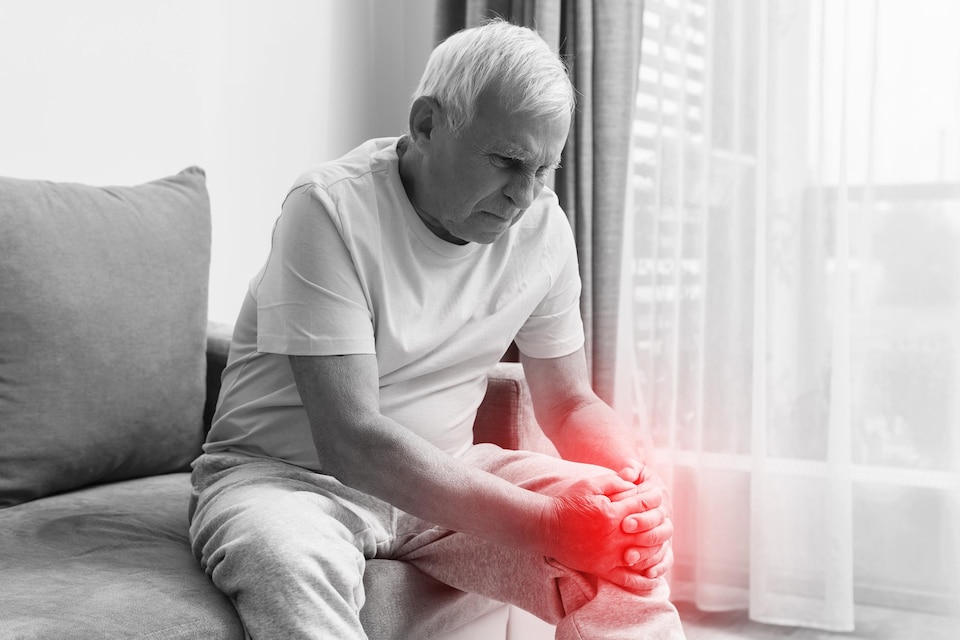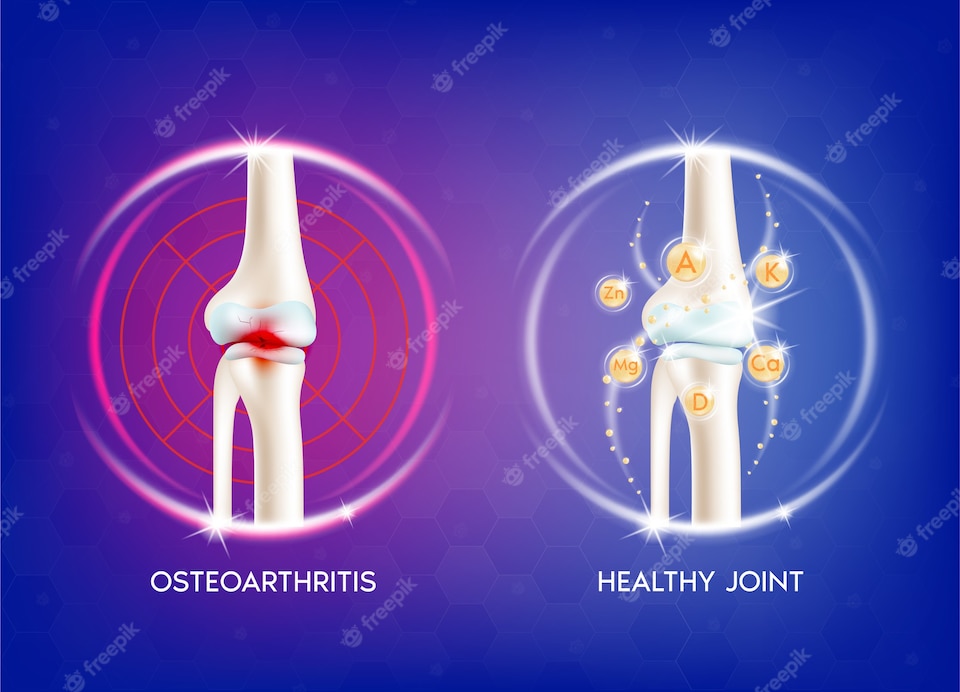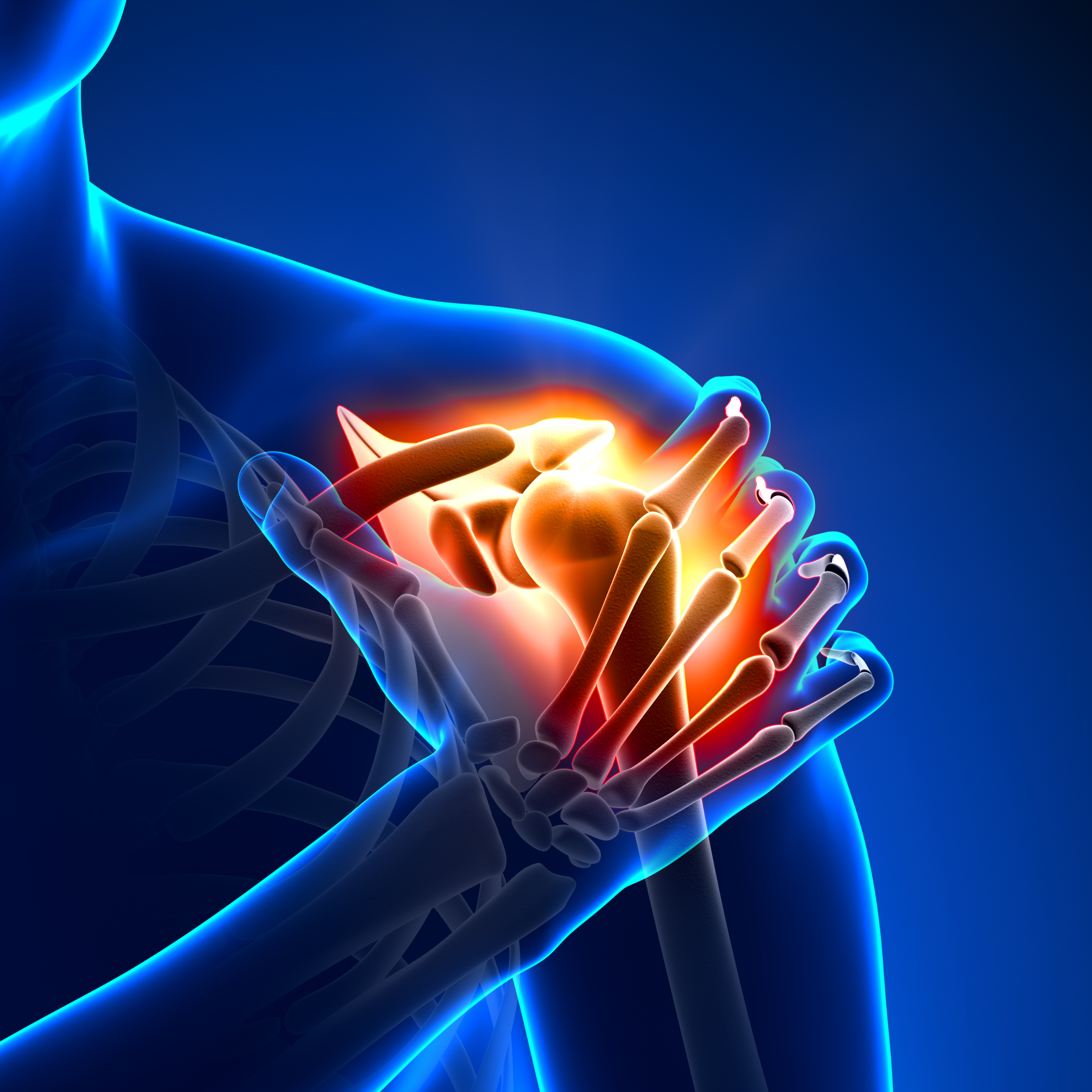Arthritis and rheumatic diseases are medical terms often used interchangeably, but they refer to different diseases with a few similarities in their presentation. Arthritis refers to a condition that primarily affects the joints whereas rheumatic diseases are a group of conditions that affect the joints, bones, tendons, ligaments and muscles.
Difference between Arthritis and Rheumatism
As mentioned, Arthritis primarily affects the major joints in the body.
The most common type of arthritis is osteoarthritis – a degenerative joint disease resulting from the wearing of the cartilage cushioning the bone and joints. Other common types of arthritis include rheumatoid arthritis – an autoimmune disease that causes inflammation in the joints, and gout – which results from a high level of uric acid in the blood.

On the other hand, rheumatic diseases are a group of conditions that can affect the
joints, bones, muscles, and other parts of the body, such as the skin, eyes, and internal organs. Rheumatic diseases can cause inflammation, pain, and stiffness in the joints and muscles. Examples of rheumatic diseases include lupus and fibromyalgia.
In general, the term “arthritis” is used to refer specifically to conditions that affect the
joints. In contrast, “rheumatic diseases” refers to a broader group of conditions that can affect multiple body systems.
Different types of Arthritis
Arthritis and other rheumatic diseases can affect people of all ages, genders, and ethnicities. However, some people may be at higher risk for these conditions due to genetic factors, certain infections, environmental exposures, or other medical conditions.
Commonly this disease is expressed as pain, stiffness, swelling and difficulty in moving the affected joints. The disease affects the overall appearance of the joint. Associated muscle weakness will also have an impact on the stability of the joints.
There are more than 100 types of arthritis, but some of the most common types include:
Osteoarthritis (OA) is the most common type of arthritis, more common in older adults. Still, it can also occur in younger people with joint injuries or certain risk factors, such as obesity. OA is a degenerative joint disease that occurs when the cartilage that cushions the bones wears away. It can cause pain, stiffness, and difficulty moving the affected joints.

Rheumatoid arthritis is an autoimmune disease that causes inflammation in the
joints. It can lead to pain, stiffness, swelling, and deformity in the affected joints. It is more common in women than men and usually starts in middle age.

Gouty arthritis is caused by high uric acid levels in the blood. It can cause sudden & severe pain attacks, redness, and swelling in the affected joints, often in the big toe. Gout is more common in men, especially those who are overweight or have high blood pressure or high cholesterol levels.
Ankylosing spondylitis is a type of arthritis that affects the spine and other joints of the body. It can cause pain, stiffness, and difficulty moving the affected joints. This condition is more common in men than women and usually starts in young adulthood.
Psoriatic arthritis is a form that occurs in people with psoriasis- a skin condition that causes red, scaly patches. It can cause pain, swelling, and stiffness in the joints and tendons.
Juvenile arthritis affects children. It can cause swelling, pain, and stiffness in the joints and lead to deformities if left untreated.
Is there a cure?
Unfortunately, arthritis is not classified as a curable disease. The goal of treatment is to reduce pain, improve function, and slow disease progression. Treatment for arthritis and rheumatic diseases may include medications for pain management, physical therapy, and surgery. Supporting therapies like TENS (Transcutaneous Electrical nerve
Stimulation) and Acupuncture are also in practice. It is also necessary to follow a healthy lifestyle, including eating a balanced diet, regular exercise, and managing stress, which can help manage the symptoms of rheumatic diseases.
Therefore, it is essential to develop an individualized treatment plan with a healthcare provider for long-term management of this disease and in turn, improve the quality of life.
How crucial is timely management?
The duration of rheumatic diseases can vary significantly from person to person. Some people may experience symptoms for a short period, while others may have ongoing symptoms that may come and go.
The course of rheumatic disease can also vary depending on the specific type of disease and the person’s circumstances. For example, some rheumatic diseases, such as osteoarthritis, may progress slowly over time, while others, such as rheumatoid arthritis, may flare up and go into remission.
Complications of Rheumatic Diseases
Rheumatic diseases can cause various complications, depending on the specific type of disease and how it affects the body. Some common complications of rheumatic diseases include:
Joint damage: Inflammation caused by rheumatic diseases can lead to joint damage, which can cause pain, deformity, and difficulty moving the affected joints.
Disability: Rheumatic diseases can cause pain, stiffness, and difficulty moving, which can lead to disability and a decrease in quality of life.
Cardiovascular disease: Some rheumatic diseases, such as rheumatoid arthritis, can increase a person’s risk of developing cardiovascular disease, including heart attack and stroke.

Infections: People with rheumatic diseases, particularly those taking immunosuppressive medications, may be at increased risk of infections.
Osteoporosis: Some rheumatic diseases, such as rheumatoid arthritis, can cause bone loss and increase the risk of osteoporosis, a condition that weakens the bones and increases the risk of fractures.
Working with a healthcare provider to manage your rheumatic disease and reduce the risk of complications is essential. This may include taking medications, making lifestyle changes, and seeking treatment for any other medical conditions you may have.
The role of Ayurveda in managing Arthritis
Ayurveda is a traditional system of medicine that originated in India and believes that health and wellness depend on the balance between the body, mind, and spirit.
Rheumatism and different types of Arthritis are variably referred to as Amavata,
Sandhivata and Vata Raktha in the classics of Ayurveda. The treatment uses a variety of natural remedies, such as herbs, massage, and meditation, to promote health and treat the illness.
The symptoms of the diseases as explained in Ayurveda include
- sever and shifting pain, markedly high in the morning hours
- stiffness in the joints
- increased temperature in the joints
- loss of movements
- joint deformity and
- loss of appetite
The treatment includes therapies like
- Snehapanam (therapeutically monitored intake of medicated ghee)
- Vamana (Therapeutically induced Vomiting)
- Virechanam (Therapeutic Purgation)
- Abhyangam – (Therapeutic massages) with medicated oils
- Fomentation using medicated bolus – Manal kizhi, Podikizhi, Elakkizhi and Herbal pastes (Lepas)
- Internal administration of herbal preparations like Maharasnadi Kashayam, Rasanaerandadi Kashayam and Mahayogaraja Guggulu is indicated
Alongside the therapeutic advice, Ayurveda also suggests dietary and lifestyle modulations for the long-term management of this disease.
Please note that it is essential to talk to your healthcare provider before starting any new treatment, including Ayurvedic remedies.
RAHA could be your best choice… Here’s why?
Raha ayurveda‘s expert team includes Ayurvedic Physicians, Physical Medicine & Rehabilitation Consultants, Physiotherapists, and Yoga – Naturopathy Doctors, capable of providing the best holistic care for Arthritis and its related conditions. Our treatment protocols
incorporate the principles of Ayurveda with Functional and Nutritional medicine to provide the best care for diseases that require long-term management.
Talk to our Experts today!!

Leave a Reply